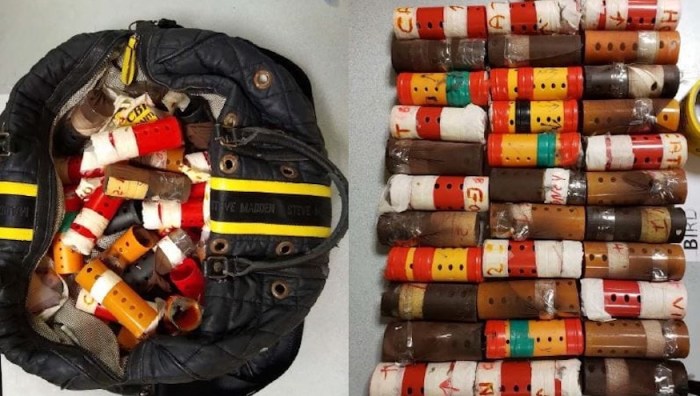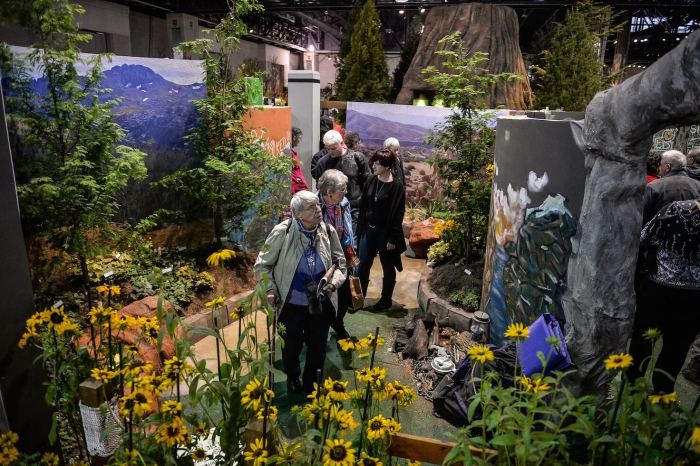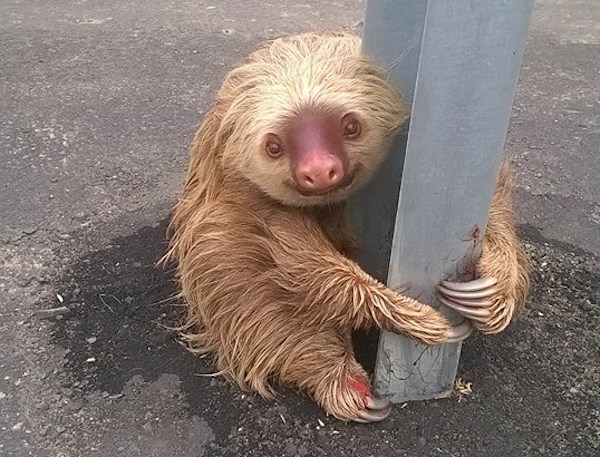Ben Kilham has spent the better part of the last two decades helping orphaned black bears find their wild sides.
The author and wildlife expert has raised more than 100 cubs over the years through the Kilham Bear Center, teaching them the skills they need to re-enter the forests of New Hampshire. Kilham’s ability to form long-lasting bonds with these creatures through his groundbreaking method has earned him the title of New England’s “bear whisperer,” while some affectionately call him “papa bear.”
Kilham’s work recently caught the eyes of researchers in China, who wanted to see if they could apply the bear specialist’s system to helping struggling giant pandas reintegrate into the wild. This east-meets-west collaboration is subject of the new documentary “Pandas,” which opens at the New England Aquarium’s Simons IMAX Theatre on April 6.
Narrated by Kristen Bell, the family-friendly film takes audiences on a globe-spanning journey from New Hampshire to China’s Chengdu Panda Base, where Kilham’s method is put to the test with a panda named Qian Qian. Viewers get to see all the ups and downs as the cute critter is reintroduced into the mountains of Sichuan.
Ahead, Kilham opens up about the successes and challenges of the project, his concerns for the future of pandas and more.

Most people wouldn’t expect black bears and pandas to have a lot in common, but what are the major similarities between the two species?
They’re both raised by their mothers. They both have long juvenile periods. They both follow their mother to learn, and she gives them a protected environment where they have the opportunity to learn by themselves. [Pandas] don’t travel, they don’t move. Black bears are the same. So we just become the mother and provide that protected environment.
What were the challenges of working on this project?
The challenges weren’t with the pandas — the challenge was working with a different culture. When I did my work with black bears, nobody cared. Nobody’s interested in black bear cubs. I was the first one to rehabilitate them in most of New England and nobody looked over my shoulder, so I just did my thing. I solved all my problems and I could move forward very quickly. In China, [pandas] are the national icon. They’re an ambassador for goodwill for the government, so the president of China and all the politicians, all the way down to our project, have something to say. That’s what makes it complicated.
Do you view the project as a success so far? Are you positive for the future of pandas?
It’s definitely a success and, despite the challenges of working with so many people involved, too many cooks so to speak, it will be a success. We’re going to learn a lot about what the panda needs to survive. There’s challenges with climate. The pandas can only live in a temperate band and, if it gets too hot, they can’t survive as the climate changes. Where they live on the mountains will change, so they’re going to be losing habitat. Even though they’re not endangered anymore and listed as vulnerable, there’s still only 2,000 of them. They’re still in fragmented populations. They’re still a limited gene pool. What we’re doing is critically important to ensure their survival in the future.
What is the message you hope audiences think about after seeing “Pandas”?
Pandas are iconic, everybody falls in love with them and they’re endangered and all this, but you know, you can’t help but to fall in love with the black bears in the movie too. You see the value of black bears, and they’ve not been well treated throughout time. I mean the European settlers, guys like Daniel Boone and Davy Crockett, were killing as many bears as they can kill, but times have changed. The more we learn about these fascinating animals, the better they’re going to come across.
The other thing is the fact that two cultures, two nations can work together towards conservation. You read the headlines and you know we got trade wars going on and the leaders badmouthing each other and saying awful things. Here we can be very comfortably in another country as advisors. It is a Chinese program they’re Chinese bears and it works very well. That’s a message of hope that conservation can bring the countries of the world together.


















